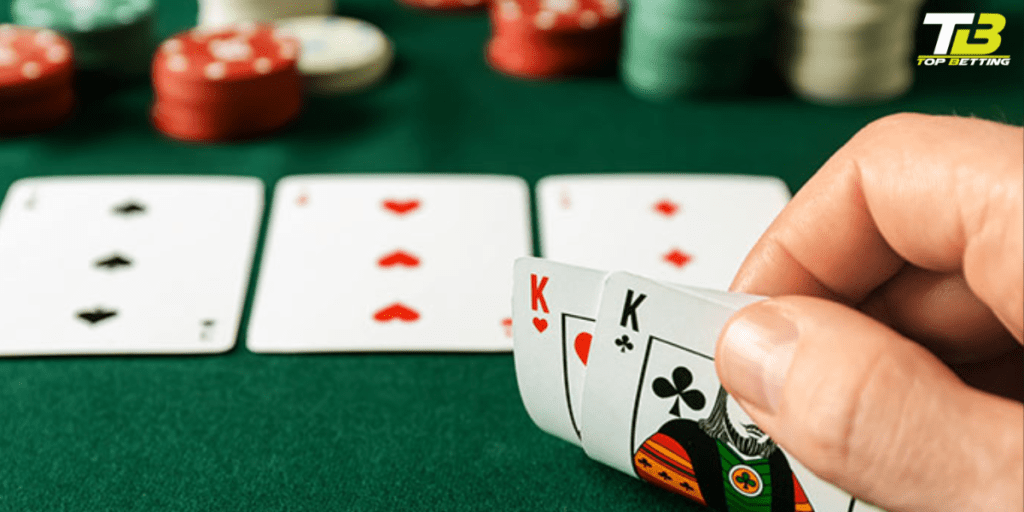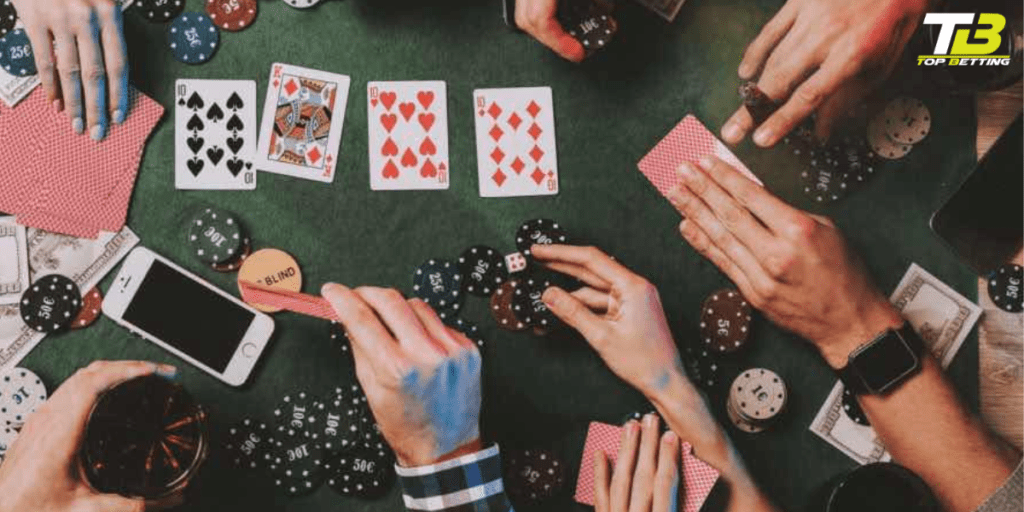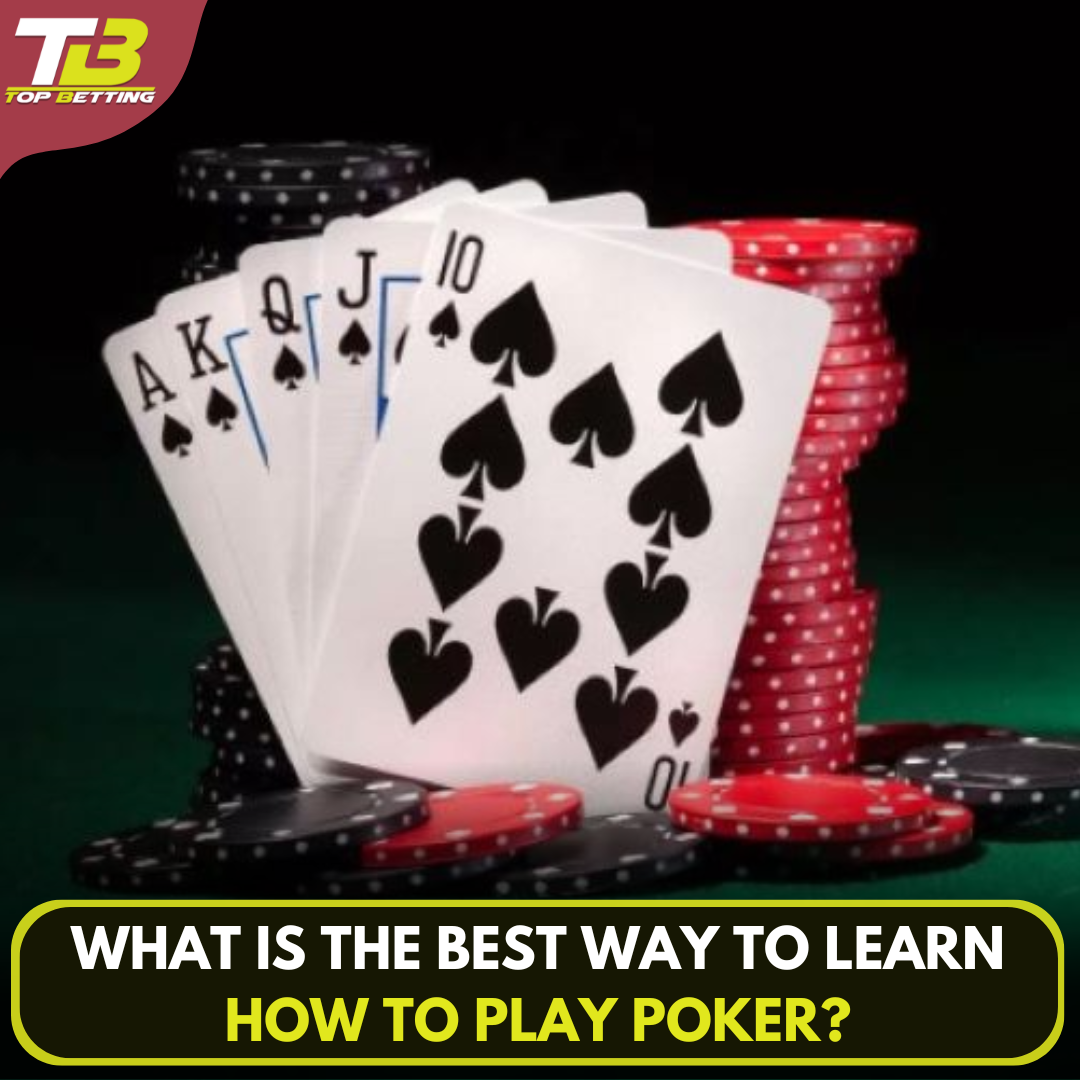
What is the best way to learn how to play poker?
Are you ready to up your poker game? Whether you’re a complete beginner or looking to sharpen your skills, learning how to play poker is an exciting and rewarding endeavor. But with so many resources available, it can be overwhelming to know where to start. So, what is the best way to learn how to play poker?
In this article, we will explore different approaches to learning poker and find the one that suits you best. From online tutorials, books, and videos to joining a local poker club or hiring a personal coach, there are countless options to choose from. We will delve into the pros and cons of each method, highlighting their unique advantages and potential pitfalls.
By the end of this article, you will have a clearer understanding of which learning method aligns with your learning style and goals. Mastering the game of poker takes time, patience, and practice, but with the right guidance, you will be well on your way to becoming a formidable player at the table. So, let’s dive in and discover the best way for you to learn how to play poker.
Benefits of learning how to play poker
Learning how to play poker offers a multitude of benefits beyond just the thrill of the game. It can improve your critical thinking, decision-making skills, and even your ability to manage risk. Poker is a game that requires a combination of strategy, psychology, and mathematics, making it a great mental exercise.
Moreover, poker is a social game that allows you to connect with people from all walks of life. Whether you’re playing at a casino, a local poker club, or even online, you’ll have the opportunity to meet new people, make friends, and build a network of fellow poker enthusiasts.
Additionally, learning how to play poker can be financially rewarding. While there is always an element of luck involved, skilled players can consistently win over the long term. With dedication and practice, you can turn poker into a profitable hobby or even a full-time career.
So, whether you’re looking to enhance your mental acuity, expand your social circle, or potentially make some extra money, learning how to play poker is a worthwhile investment of your time and effort.
Different variations of poker
Before diving into the various methods of learning poker, it’s important to understand that there are different variations of the game. The most popular variations include Texas Hold’em, Omaha, Seven-Card Stud, and Five-Card Draw. Each variation has its own set of rules, strategies, and nuances, so it’s essential to choose a variation that resonates with you.
Texas Hold’em is the most widely played variation of poker. It’s a community card game where each player is dealt two private cards and uses a combination of these cards and the community cards to make the best possible hand.
Omaha is another popular variation that is similar to Texas Hold’em. The main difference is that players are dealt four private cards instead of two. In Omaha, players must use exactly two of their private cards and three of the community cards to form their hand.
Seven-Card Stud is a classic variation that was once the most popular form of poker before Texas Hold’em took over. In this game, players are dealt a combination of face-down and face-up cards, and the goal is to make the best five-card hand.
Five-Card Draw is a simple and straightforward variation where players are dealt five private cards, and they have the opportunity to exchange some or all of their cards for new ones. The goal is to make the best five-card hand after the draw.
Each variation has its own unique strategies and gameplay dynamics, so it’s essential to choose a variation that you enjoy and are willing to invest time in learning.
Steps to learning how to play poker

Now that you have a basic understanding of the benefits of learning poker and the different variations available, let’s explore the steps to effectively learn and improve your poker skills.
Start with the basics: Familiarize yourself with the rules and hand rankings of the chosen variation. Understand the different betting rounds and the terminology used in poker.
Study the strategy: Poker is a game of skill, and understanding the strategy is crucial. Invest time in studying poker strategy books, online tutorials, and videos. Learn about position play, hand selection, pot odds, and bluffing techniques.
Practice online: Online poker platforms offer a great opportunity to practice your skills against real players. Start with low-stakes games and gradually move up as you gain confidence. Take advantage of the numerous free resources available, such as hand analyzers and poker forums.
Review and analyze your play: Keep track of your sessions and analyze your gameplay. Identify areas where you’re making mistakes or missing opportunities. This self-analysis will help you improve your decision-making process and identify patterns in your opponents’ play.
Join a poker community: Interacting with other players who share your passion for poker can be invaluable. Join online forums, participate in discussions, and learn from more experienced players. You can also consider joining a local poker club or attending live poker events to further enhance your skills.
Get coaching: If you’re serious about taking your poker game to the next level, consider hiring a personal poker coach. A coach can provide personalized guidance, analyze your gameplay, and help you identify weaknesses and areas for improvement.
Remember, learning poker is a journey, and it’s essential to be patient and persistent. With consistent practice and a commitment to continuous learning, you can steadily improve your skills and become a formidable player at the poker table.
Online resources for learning poker
The internet is a treasure trove of resources for learning how to play poker. Whether you prefer written articles, videos, or interactive tutorials, there are numerous online platforms dedicated to teaching poker.
One popular online resource is PokerStars, one of the largest online poker sites. They offer a comprehensive poker school with articles, videos, and interactive tutorials suitable for players of all skill levels. The PokerStars School covers various aspects of poker, including strategy, hand analysis, and bankroll management.
Another excellent online resource is Upswing Poker, founded by high-stakes poker players Doug Polk and Ryan Fee. Upswing Poker offers a range of courses, articles, and videos that cater to both beginners and advanced players. Their content covers topics such as hand reading, GTO (Game Theory Optimal) play, and tournament strategy.
For players looking for a more interactive learning experience, Run It Once offers a subscription-based poker training site. Run It Once provides a vast library of training videos from top poker pros, covering a wide range of topics and variations. The site also features forums where members can interact with each other and discuss poker hands and strategies.
These are just a few examples of the many online resources available for learning poker. It’s important to explore different platforms and find the ones that resonate with your learning style and goals.
Books and literature on poker strategy
If you prefer learning from books, there is a vast selection of literature on poker strategy available. Here are a few highly acclaimed books that cover various aspects of the game:
“The Theory of Poker” by David Sklansky: This classic book is often referred to as the “Poker Bible.” It covers fundamental concepts such as hand rankings, position play, and game theory. Sklansky’s book is a must-read for any serious poker player.
“Harrington on Hold’em” by Dan Harrington: This three-volume series focuses on Texas Hold’em tournament strategy. Harrington, a former World Series of Poker Main Event champion, provides valuable insights into hand selection, bet sizing, and playing different stages of a tournament.
“The Mental Game of Poker” by Jared Tendler and Barry Carter: Poker is not just about the cards; it’s also about the mental aspect of the game. This book explores the psychological challenges that poker players face and offers strategies to overcome them. It covers topics such as tilt control, emotional resilience, and building confidence.
These are just a few examples, and there are countless other books available on various aspects of poker strategy. Reading books can provide a deep understanding of the game and offer insights from experienced players.
Joining a poker club or community

Joining a poker club or community is an excellent way to connect with other players, learn from their experiences, and improve your game. Here are a few options to consider:
Local poker clubs: Many cities have local poker clubs that host regular games and tournaments. Joining a club allows you to play against a variety of players and gain practical experience. It’s also a great way to build a network of fellow poker enthusiasts.
Online poker communities: Online forums such as TwoPlusTwo and Reddit’s r/poker provide a platform for players to discuss strategy, share hand histories, and ask questions. These communities are a valuable resource for learning from experienced players and getting feedback on your play.
Live poker events: Consider attending live poker events and tournaments in your area. These events not only offer the opportunity to play against skilled players but also provide a chance to observe professional players in action. Watching how the pros approach the game can be a valuable learning experience.
Joining a poker club or community allows you to immerse yourself in the poker world and learn from others who share your passion for the game.
Playing poker with friends or at a casino
Playing poker with friends or at a casino can be a fun and educational experience. Here are a few tips to make the most of these opportunities:
Home games: Organize poker nights with your friends or colleagues. Playing in a relaxed setting allows you to practice your skills, experiment with different strategies, and learn from each other. It’s also a great way to strengthen social connections and have a good time.
Casino poker rooms: If you’re looking for a more competitive environment, consider playing at a casino poker room. Most casinos offer a variety of cash games and tournaments suitable for players of all skill levels. Playing against a diverse range of opponents can help you refine your skills and adapt to different playing styles.
It’s important to remember that while playing with friends or at a casino can be enjoyable, there is also an element of risk involved. Set a budget for your poker sessions and play within your means. Always prioritize responsible gambling and ensure that it remains an enjoyable and sustainable activity.
Common mistakes to avoid while learning poker
Learning poker is a process, and it’s natural to make mistakes along the way. However, being aware of common pitfalls can help you avoid them and accelerate your progress. Here are a few common mistakes to watch out for:
Playing too many hands: Beginners often fall into the trap of playing too many hands. Focus on starting with strong hands and gradually expand your range as you gain more experience and understanding of the game.
Neglecting bankroll management: Proper bankroll management is essential for long-term success in poker. Set aside a dedicated poker bankroll and avoid playing at stakes that are beyond your means. This will help you manage your losses and ensure that you can withstand the inevitable variance in the game.
Failing to adapt to different opponents: Poker is a game of observation and adaptation. Pay attention to how your opponents play and adjust your strategy accordingly. What works against one player may not work against another, so be flexible and willing to adjust your approach.
Letting emotions control your decisions: Poker can be an emotional game, and it’s easy to let emotions cloud your judgment. Avoid going on tilt (letting frustration or anger affect your decision-making) and practice emotional resilience. Stay focused and make rational decisions based on the information available.
Neglecting the importance of position: Position is a crucial concept in poker. Being in a late position allows you to gather more information about your opponents’ actions before making your own decision. Learn to leverage position to your advantage and be aware of the power it holds in influencing your strategy.
By being mindful of these common mistakes, you can avoid unnecessary setbacks and progress more efficiently in your poker journey.

Conclusion
Learning how to play poker is an exciting and rewarding endeavor that offers numerous benefits. Whether you’re looking to enhance your critical thinking, expand your social network, or potentially make some extra money, poker has something to offer.
With the myriad of learning resources available, it’s important to find the method that suits your learning style and goals. Whether you prefer online tutorials, books, joining a poker club, or playing with friends, there is no one-size-fits-all approach to learning poker.
Remember that mastering poker takes time, patience, and practice. It’s a journey of continuous learning and improvement. Embrace the process, be open to new strategies and ideas, and stay committed to developing your skills.
So, what are you waiting for? Choose your preferred learning method, dive in, and start your poker journey today. Whether you’re aiming to become a professional player or simply looking to have fun and improve your game, the world of poker awaits you. Good luck and may the cards be in your favor!










